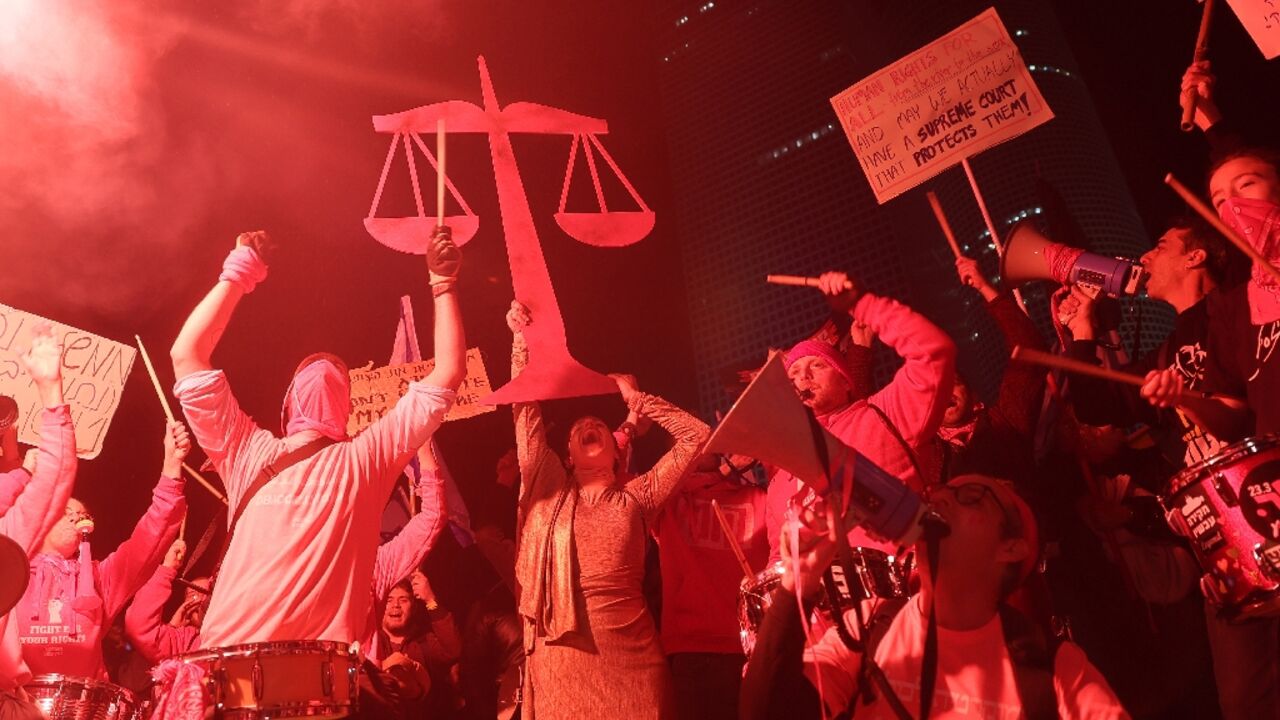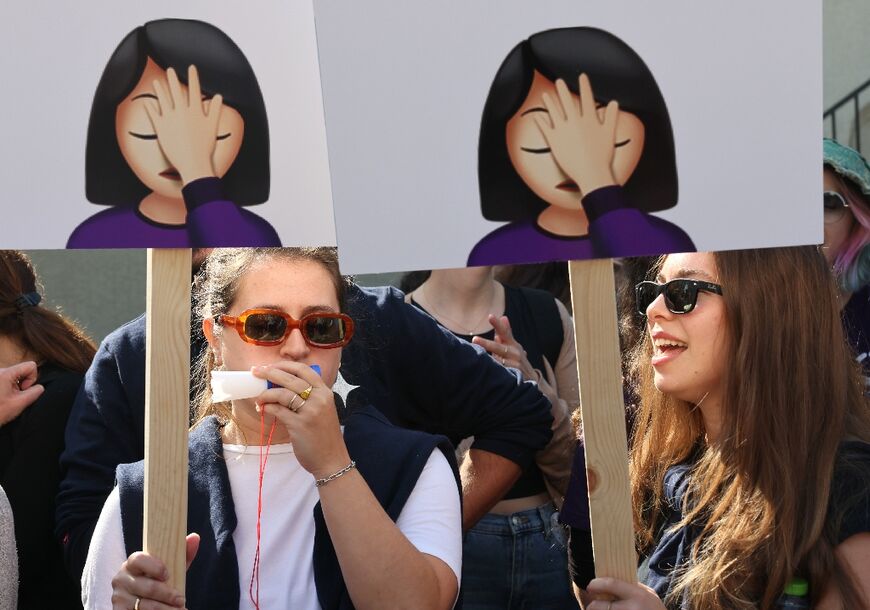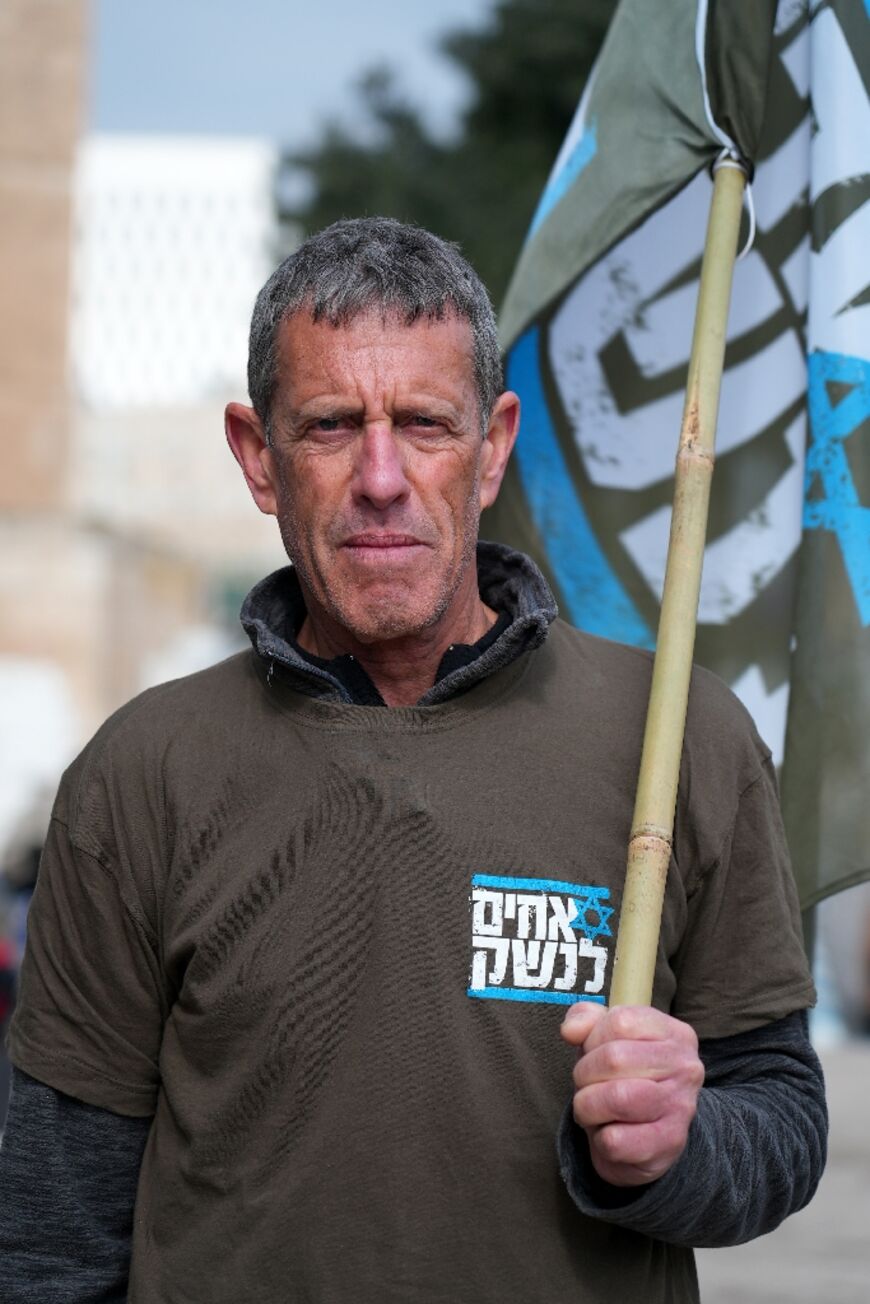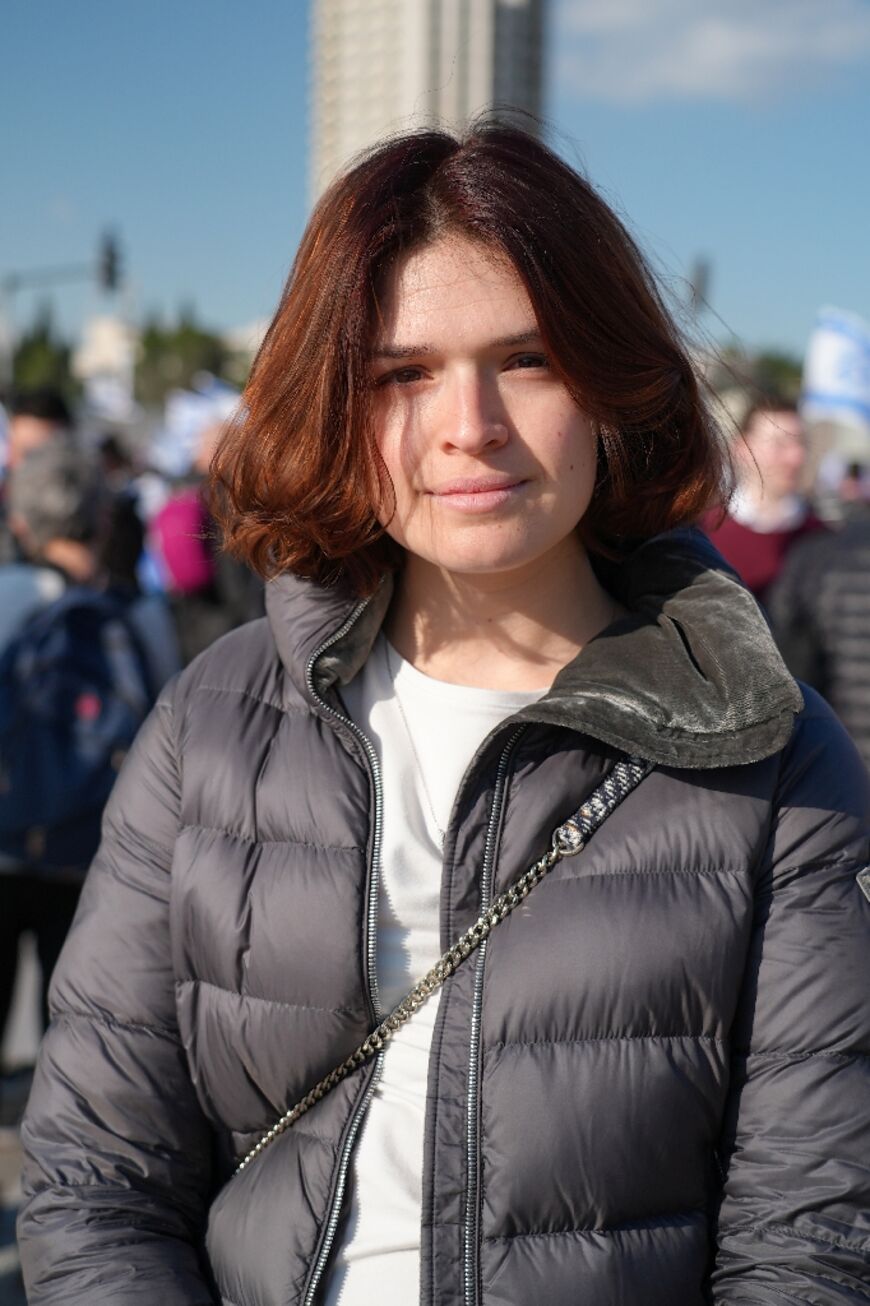Israelis speak out against controversial judicial reform

Mass protests against Israeli Prime Minister Benjamin Netanyahu's government focusing on deeply controversial reforms of the judicial system have united diverse groups fearing it would give the legislative branch nearly unchecked authority.
Netanyahu and his allies in government, the most right-wing in Israel's history, say the reforms are necessary to correct an imbalance that has given judges too much power over elected officials.
But protesters -- who in recent weeks have repeatedly taken to the streets in Tel Aviv, Jerusalem and elsewhere -- say they fear democracy is under threat as the government seeks to diminish the power of the judiciary.
Supreme Court President Esther Hayut, in a rare public rebuke, has branded the proposed reforms an "unbridled attack" against justice.
- Shy Engelberg, 38 -
"We are protesting against the government's desire to pass laws that will end Israeli democracy," said data specialist Shy Engelberg, 38, who works at a start-up.
The judicial reform programme includes a clause which permits parliament to annul decisions by the Supreme Court, which Netanyahu and his allies view as politicised.
The measures also foresee changing the system of nominating judges and reducing the influence of legal advisers within ministries.
Currently, top jurists are chosen by a panel overseen by the justice minister that includes judges, lawmakers and lawyers representing the Israeli Bar Association.
"No one wants to invest their money in a country in which the courts and the judicial system are not independent and where the government is unstable," said Engelberg, from the northern town of Karkur.
High-tech workers have already organised numerous rallies against the reform programme, and Engelberg hoped they would continue to pressure the government.
"The high-tech sector is waking up, for the first time it's making its voice heard," he said.
- Tamar Megiddo, 40 -
"I've been fighting with all my strength these past few months against this revolution that the government is trying to lead," said Tamar Megiddo, 40, a law professor, who lives in a suburb of the coastal city of Tel Aviv.
"They are not trying to change a law, they are trying to change the entire system, the rules of the game. And if it passes, it will be very hard to go backwards, it will be irreversible."
"That's why we need to stop it now," said Megiddo, who is in a same-sex relationship with three children.
Israel recognises same-sex marriages from abroad and has the most progressive LGBTQ legislation in the Middle East.
But Megiddo feared her rights are in danger.
"In our government we have very extremist people, very conservative, very chauvinist and homophobic," she said.
"If the courts are restricted as planned, we can't defend ourselves."
- Amnon Magnus, 63 -
"The political situation in Israel has become intolerable," said farmer Amnon Magnus, 63, wearing a t-shirt with "brothers in arms" written on it.
A former soldier and reservist, Magnus believes the reforms will prompt some to rethink their military roles.
"This situation is dividing people, it creates conflict and disunity," he said.
"People won't be motivated to fight and risk their lives for something they don't believe in anymore," added Magnus, from Hod Hasharon in central Israel.
The military plays a central role in Israeli society and national service is obligatory for the majority of citizens.
"If this country won't be just and humane... people won't want to enlist," he said.
- Noa Haliva, 24 -
"We are here to stop the judicial reform, which is not even a reform, it's a coup," said political science student Noa Haliva, 24.
Some of Netanyahu's critics have tied the reform plan to his ongoing corruption trial, arguing he is seeking to undermine a judicial system he has accused of targeting him unfairly for political reasons.
Netanyahu has denied the corruption charges.
"I think that there are political considerations at play... (and) personal interests," said Haliva, one of the organisers of the student protest movement.
"We are young, this country is our home, our future. A lot of students are concerned," she said.
"I still feel worried for the future of my country, but I am happy to see people coming to the streets to express their opinion".








